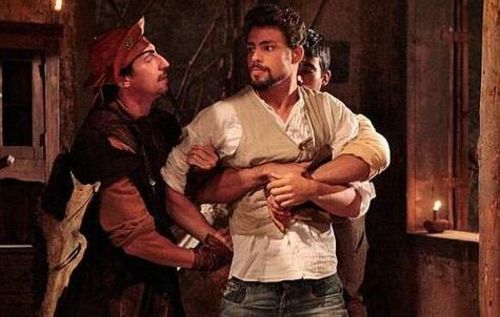São Paulo – Soap opera "Cordel Encantado" was not only successful in Brazil. Broadcast by Globo TV in 2011, the attraction got to the Arab world in October 2012. Production company Beelink, from the United Arab Emirates, licensed the rights from the soap opera and became responsible for distribution and for translation into Arabic. The pay channel OSN, in Dubai, and free-to-air TV channel CBC, from Egypt, are already showing the programme. In the near future, "Cordel Encantado" will be broadcast in Lebanon, in other countries in North Africa and also by a free-to-air TV channel in Dubai.
When it was shown on Brazilian TV, "Cordel Encantado" won critical acclaim and kept ratings up in the 6:00 pm slot, due to its innovations. The love story between characters Jesuíno Araújo (Cauã Reymond) and Azucena Bezerra (Bianca Bin) mixed fairy tales with the history of northeastern Brazilian bandits and also the culture of "cordel" literature.
New generation cameras used in the shooting granted sharper, more vivid colours and precise detail. According to Globo TV, these were the reasons why "Cordel Encantado" attracted the attention of foreign clients in negotiations that also included other products in the company’s portfolio.
"Cordel Encantado", however, is not the first of Globo TV ‘s programmes on the small screen in the Arab countries. The Lebanese and Iraqis have already seen miniseries "The House of the Seven Women" (2003), and the Moroccans were given the opportunity to view "India – A Love Story" (2009), "Lady of Destiny" (2004) and "The Clone" (2001) , soap operas broadcast on Brazilian in the 9:00 pm slot.
To date, "The Clone" is one of the soap operas produced by the Brazilian TV channel that has been most sold to foreign customers. It has been licensed to over 90 countries and even won a co-production with the American Telemundo channel in 2009, to be broadcast in Mexico and the United States. Another success story, "El Clon" has been sold to over 50 countries. According to Globo TV, the most successful soap opera overseas was "The Colour of Sin" (2004), by João Emanuel Carneiro, broadcast in over 100 countries.
"The Beloved" was the first soap opera licensed to another country. It was sold to Uruguay in 1973. Since then, Globo has sold over 130 titles to over 170 countries. Even old soap operas like "Roque Santeiro" (1985) and "The Cattle King" (1996) are still being sold.
Brazilian football
According to information disclosed by Globo TV, the Middle Eastern countries that are most interested in the company’s products are Morocco, Lebanon, the Emirates, Iraq and Iran (which is not an Arab nation).
Even with the already captive clients in the Middle East and North Africa, Globo states that the presence of its products in the region is growing. "The success of our expansion in the region is due to the internationally renowned quality of Globo products and also to the Brazilian football licensing rights by our unit responsible for negotiating sports rights on the international market," said the company in a statement sent to ANBA. Globo TV also said it always participates in fairs seeking new partners and to strengthen the alliances that already exist.
The company also said that its programs displayed in other countries are a "window" and stated that the target audience for these products overseas is "expanded". "Regardless of being formed by Brazilians or not, we believe that audiences always seek to engage with television and, for this purpose, there is nothing better than a good story, always present in our famous soap operas," said Globo Communications to ANBA .
*Translated by Mark Ament




